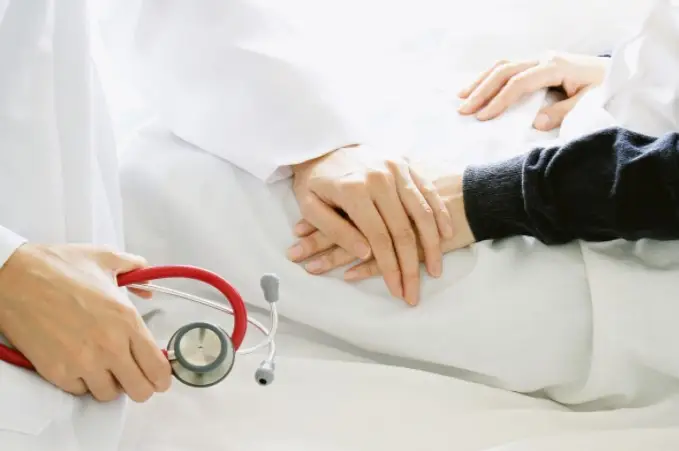We see a common mistake far too often: victims do not visit a doctor after their accidents.
Here’s a look at why getting proper (and continuous) medical care following any Atlanta personal injury accident is so important:
- Immediate Medical Care Establishes a Link Between your Accident and your Injuries. By visiting a doctor right after the accident, you are documenting the immediate effect of the accident on your body. Medical care establishes a link between your injuries and the accident. If you wait too long after the accident to see a doctor, your claim that injuries resulted from the accident seem less credible. Even with legitimate injuries, the insurance company, medical lawyers for the other side, a judge, or jury can view the long gap between the accident and seeing a doctor as:
- There is no correlation between the accident and injuries
- The injuries resulted from another incident
- You are making up the injuries
- The injuries are from a preexisting condition
- Your Doctor Has Credibility. Visiting your primary care physician or the emergency room after an accident creates credibility. That doctor is not getting paid to review your injuries; rather, they are legitimately treating your health after an accident. If your primary care physician is not available, visit the emergency room of a local hospital then follow up with your family doctor. This way, you have a record of the injuries resulting from an accident.
- Follow-Up Appointments Document the Progress of Your Injuries. As accident victims start feeling better, they are tempted to skip their doctors’ appointments. However, stopping medical treatment too soon is a big mistake.
Remember that your personal injury claim includes injuries that affect your life. Medical care appointments can confirm this. On the other hand, the insurance company, attorneys for the other side, a judge, or jury can claim that a victim ignoring recovery instructions or missing doctors’ appointments indicate that:- Your accident-related injuries are not affecting your life
- You are not hurt to the extent that you claim to be
- Medical care is not necessary because you were not hurt in the first place
But you MUST be diligent about continuing doctors’ appointments, treatment plans, checkups, surgeries, rehabilitation, medication, and physical therapy. Continue to use special equipment prescribed by your medical care team. - Medical Records Form the Basis of Recovery. Medical records are a key piece of evidence in an accident when you are claiming injuries. Your doctor will keep records that show diagnosis, prognosis, and treatments. Since you are requesting compensation based on injuries from your accident, ideally, your recovery will be for:
- Medical costs
- Future medical costs
- Pain and suffering
The way to prove medical costs, future medical costs, and pain and suffering damages is through medical records. Medical records will also determine the type of disability you have from the accident and if long-term care will be needed.
Proper medical care can help ensure that your medical records are substantial and reflect your health-related challenges from the accident.
- Communication Creates Clear Medical Records. Since medical records reflect the effect of the accident (and therefore a large part of the compensation to which you are entitled), maintain good communication with your doctors and doctors’ offices. Keep these communication tips in mind:
- If you select new doctors, consider whether they have good communication skills so they will listen to you and reflect discussions in your medical records.
- Be honest about your injuries, discomfort, and preexisting conditions. Doctors will consider your past medical history as they make a diagnosis. Prior medical history will come up anyway when you have a personal injury claim, so hiding it will hurt you.
- You will likely be asked the reason for your visit and what happened – in writing and/or conversation. Be careful about what you disclose. What you tell your healthcare provider is generally reflected in the medical records, and the opposing side will see the medical records. They may use what you say against you. For example, you may tell a doctor that “the other car was driving 40 miles per hour.” That can be used as evidence against you and hurt your case at trial.
- Allow your healthcare professionals to focus on treating you, do not get them involved in the legal aspect of the accident.
- Communicate clearly about the discomfort and limitations you are experiencing.
- Be pleasant and maintain good relationships with everyone who provides medical treatment. Unfortunately, negative interactions are often reflected in medical records. Hostile interactions with physicians will make them unhelpful witnesses.
- Make sure to go to every appointment on time. Being late or not showing to your appointments may cause your medical care professionals to think less favorably about you and, therefore, may not be helpful witnesses.
- An Accurate Diagnosis Leads to the Best Treatment Plan for Your Injuries. Your diagnosis determines your treatment. Once a doctor makes the diagnosis, they will determine medical care treatment. Resist a course of action where you keep visiting different doctors looking for a diagnosis. That type of shopping around suggests that your injuries are not legitimate.
- The Duration and Severity of your Treatment Affect Your Settlement. The more serious the injuries and the longer you need medical care, the higher the settlement. Therefore, work with your doctors to make legitimate referrals to specialists.
Call the Atlanta Personal Injury Attorneys at CEO Lawyer to Help Evaluate Your Medical Records and Your Case
The experienced car accident attorneys in Atlanta and throughout Georgia at the CEO Lawyer Personal Injury Law Firm know how to evaluate your medical records and your case to help you pursue a favorable settlement. Do not wait to contact the CEO Lawyer team to discuss your medical treatment and accident.




